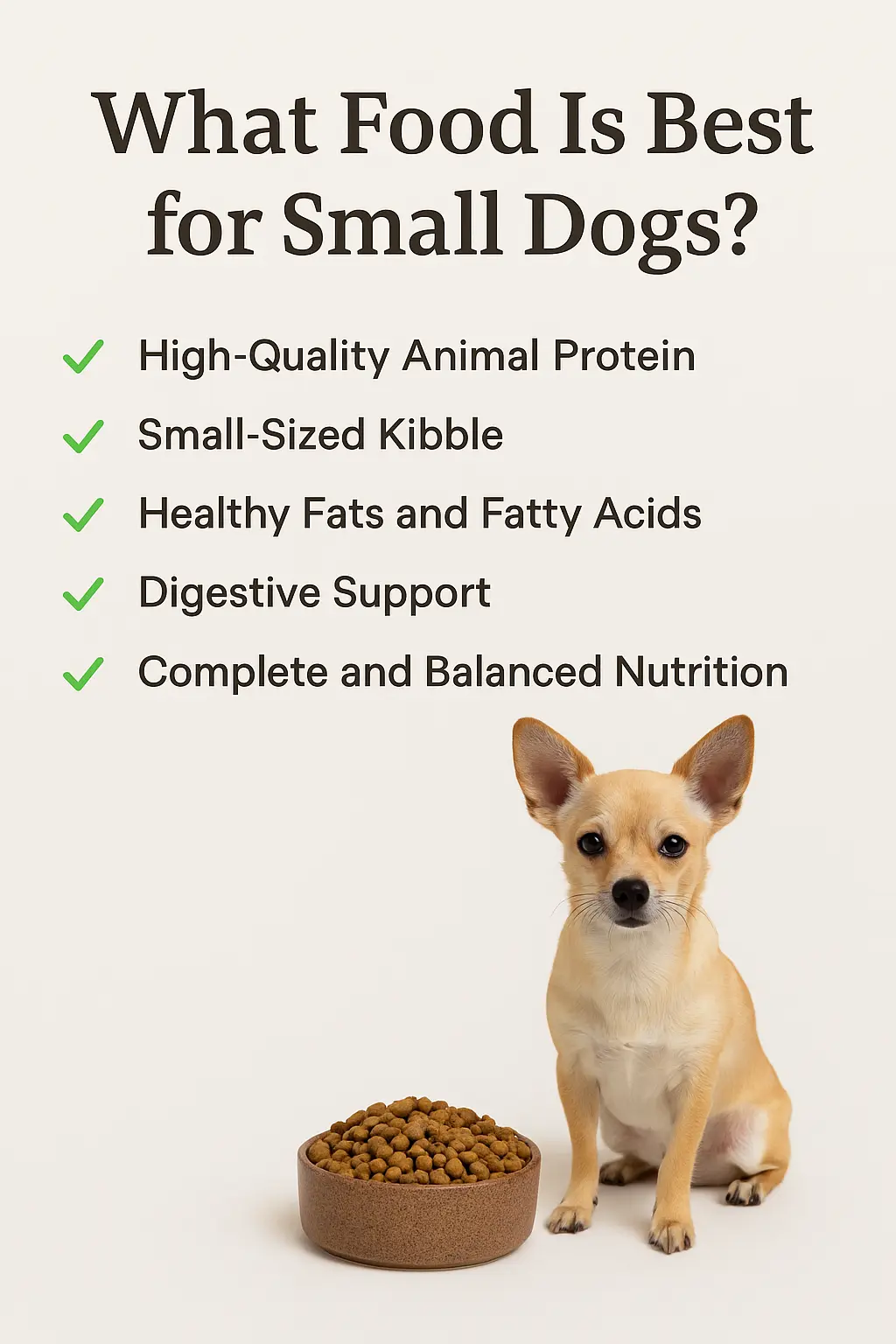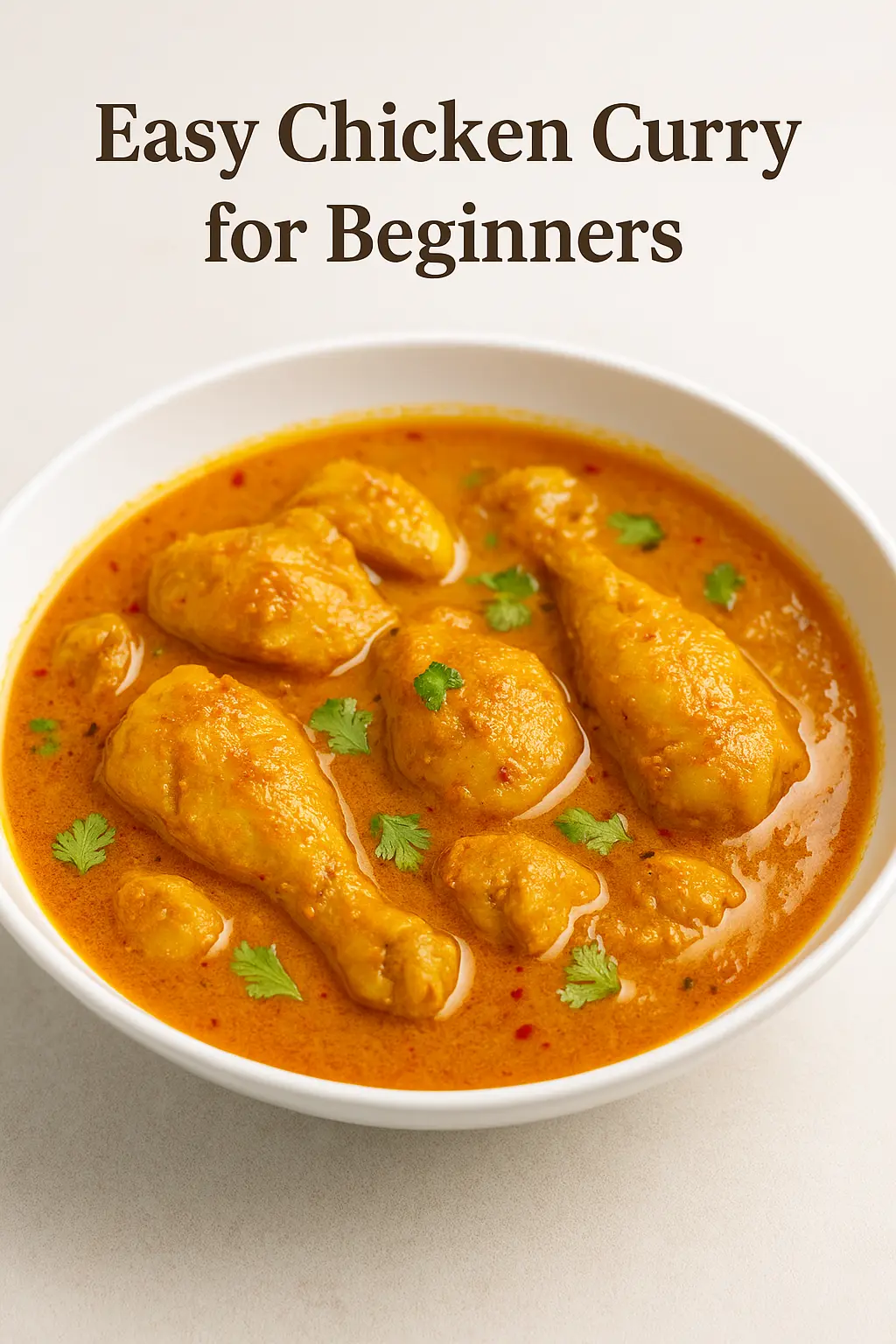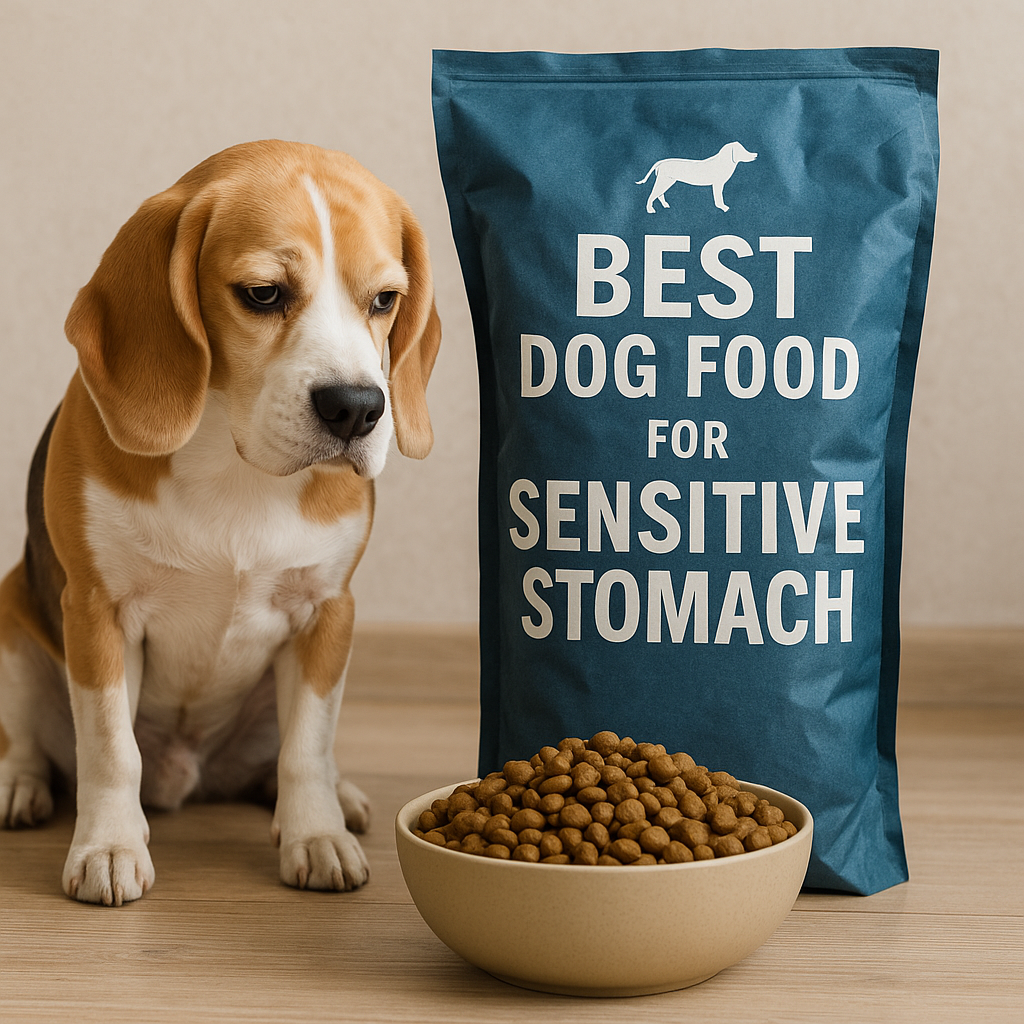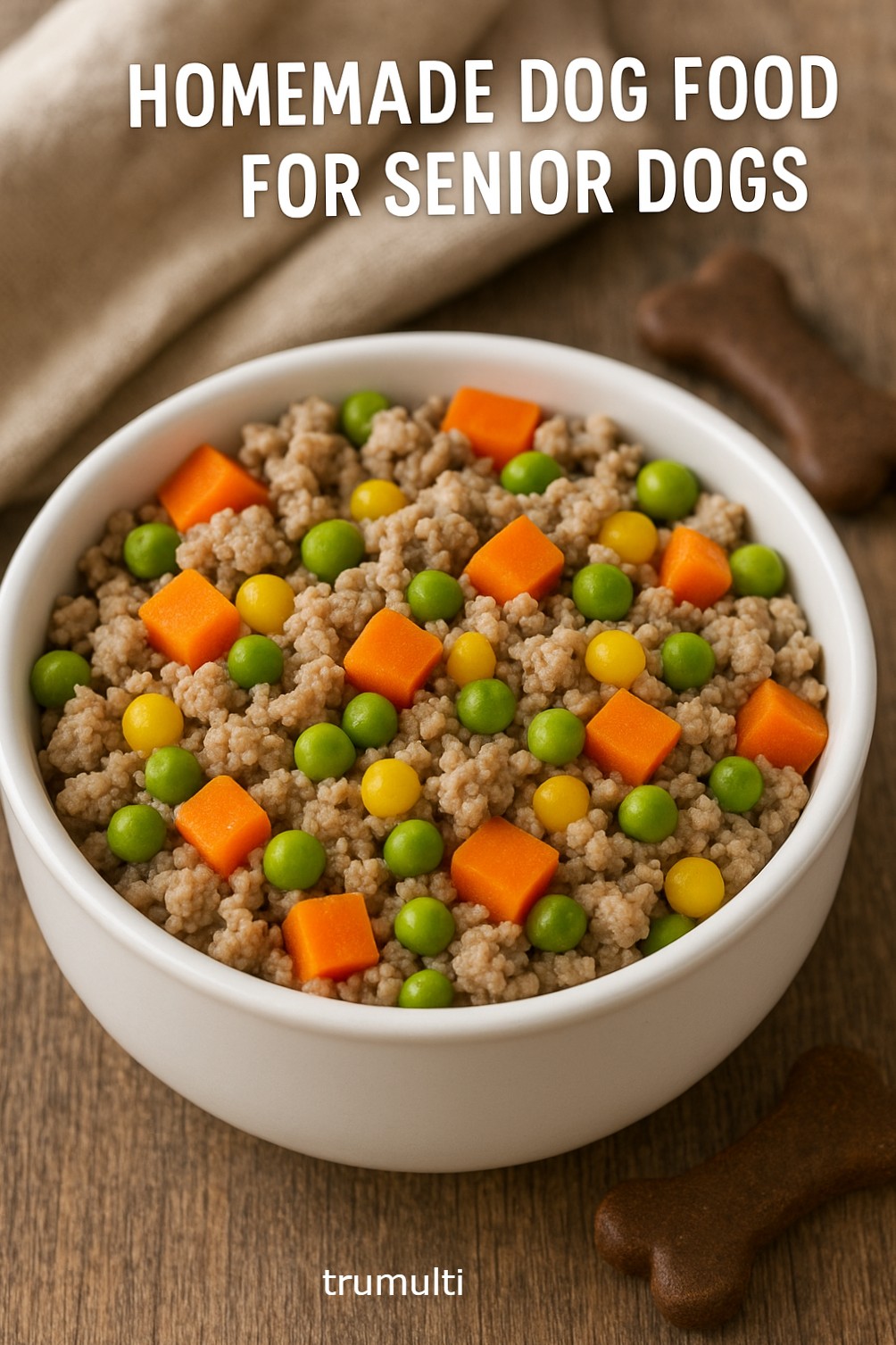Understanding the Nutritional Needs of Small Dogs
When it comes to our furry friends, size truly does matter especially when it comes to their nutrition. Small dogs are called furry friends. Small dogs may look tiny and delicate, but their nutritional needs can be surprisingly complex. Whether you’re a first-time small dog owner or simply trying to upgrade your pup’s diet, understanding what your small dog really needs can make all the difference in their health and happiness. So. In this blog, you will know What Food Is Best for Small Dogs? If anybody has any questions, you can say me. We will answer as soon as possible.
Why Size Matters in Dog Nutrition
Small breed dogs, typically weighing under 20 pounds, have faster metabolisms compared to larger breeds. This means they burn energy quickly and require more calories per pound of body weight. But that doesn’t mean just feeding them more food—it means feeding them better food.
These pint-sized pups also have smaller stomachs, which means every bite counts. Their food needs to be packed with high-quality nutrients that support their energy levels without overwhelming their tiny digestive systems.
Key Nutritional Requirements for Small Dogs
Let’s break down the essential components of a balanced diet for small breed dogs:
1. High-Quality Protein
Protein is the building block of muscles, and small dogs need a good amount to maintain their strength and energy. Look for food with named animal proteins like chicken, beef, lamb, or fish listed as the first ingredient.
- Healthy Fats for Energy
Fats are an important energy source. They also help keep your dog’s coat shiny and skin healthy. Small breeds need slightly more fat in their diet to match their active lifestyle.
- Look for sources like chicken fat, salmon oil, or flaxseed oil.
3. Balanced Carbohydrates
Carbohydrates supply energy and aid digestion. Whole grains like brown rice, oats, or sweet potatoes are great options. For grain-sensitive pups, go for grain-free formulas with veggies like peas and lentils.
4. Vitamins and Minerals
Small dogs need adequate levels of calcium, phosphorus, and other vitamins to maintain bone health and a strong immune system. This is especially important for puppies and senior dogs.
5. Omega-3 and Omega-6 Fatty Acids
These support brain development, heart health, and reduce inflammation. They’re often found in fish oil and flaxseed.
Small Dogs, Big Appetites (and Attitudes)
Small dogs do not understand for time table of food. So, every dog owner will be conscious about this topic. Small breeds often have big personalities and big appetites. But due to their size, overeating can lead to obesity very quickly. It’s important to control portions, follow a feeding schedule, and resist those pleading puppy eyes!
Also, smaller dogs can be more prone to dental issues, so consider:
- Kibble that supports dental health
- Regular brushing and dental chews
Special Considerations by Life Stage
- Puppies: Need more calories, protein, and DHA (for brain development)
- Adults: Require maintenance diets with balanced nutrients
- Seniors: Need fewer calories and more joint support (glucosamine, chondroitin)
Always choose a food labeled for your dog’s life stage, and consult your vet for tailored advice.
Small dogs may be little in size, but their nutritional needs are anything but small. Whether you’ve got a spunky Chihuahua, a cuddly Shih Tzu, or a curious Pomeranian, finding the best dog food for small breeds is essential to keep them healthy, energetic, and happy.
In this post, we’ll break down what makes small breed food different, what ingredients to look for, and the top features that matter most for your mini companion.
Why Small Breeds Need Special Dog Food
Small dogs have fast metabolisms and burn energy quicker than large breeds. This means they need:
- More calories per pound
- Smaller kibble size for their tiny mouths
- Nutrient-rich formulas to fuel their active lifestyle
A generic “all-breed” dog food may not meet these specific needs and can lead to issues like weight gain, dental problems, or digestive upset.
Key Features of the Best Small Breed Dog Foods
When shopping for small dog food, here’s what to look for:
1. High-Quality Protein
Small breeds need strong muscles to support their energetic nature. Look for real meat like chicken, turkey, beef, or salmon as the first ingredient.
2. Healthy Fats for Energy and Skin
Fats are a key energy source. Ingredients like chicken fat, fish oil, and flaxseed provide essential Omega-3 and Omega-6 fatty acids, which support:
- Skin and coat health
- Brain development
- Heart function
3. Small, Crunchy Kibble
Tiny mouths need small-sized kibble that’s easy to chew and helps prevent dental plaque.
4. Digestive Support
Small dogs often have sensitive stomachs. Look for:
- Probiotics
- Prebiotic fiber
- Easily digestible grains (like brown rice or oatmeal)
Or choose grain-free options if your dog is sensitive to grains.
5. Life-Stage Specific Nutrition
Choose formulas made specifically for:
- Puppies: Extra protein, DHA, and calories
- Adults: Balanced energy and maintenance nutrients
- Seniors: Fewer calories, joint support, and antioxidants
Top Recommended Ingredients for Small Breeds
Here are some ingredients to look for on the label:
- Chicken, turkey, beef, or lamb
- Brown rice or sweet potatoes
- Fish oil or flaxseed
- Blueberries, carrots, and spinach
- Probiotics (e.g., Lactobacillus acidophilus)
Is High-Protein Food Good for Small Dogs?
Yes, high-protein food can be very beneficial for small dogs—when it’s balanced and high-quality. Small breeds are full of energy and burn calories quickly, so they need nutrient-dense meals to stay strong and active.
High-protein diets help:
- Build and maintain lean muscle
- Support healthy skin and coat
- Provide lasting energy for playful pups
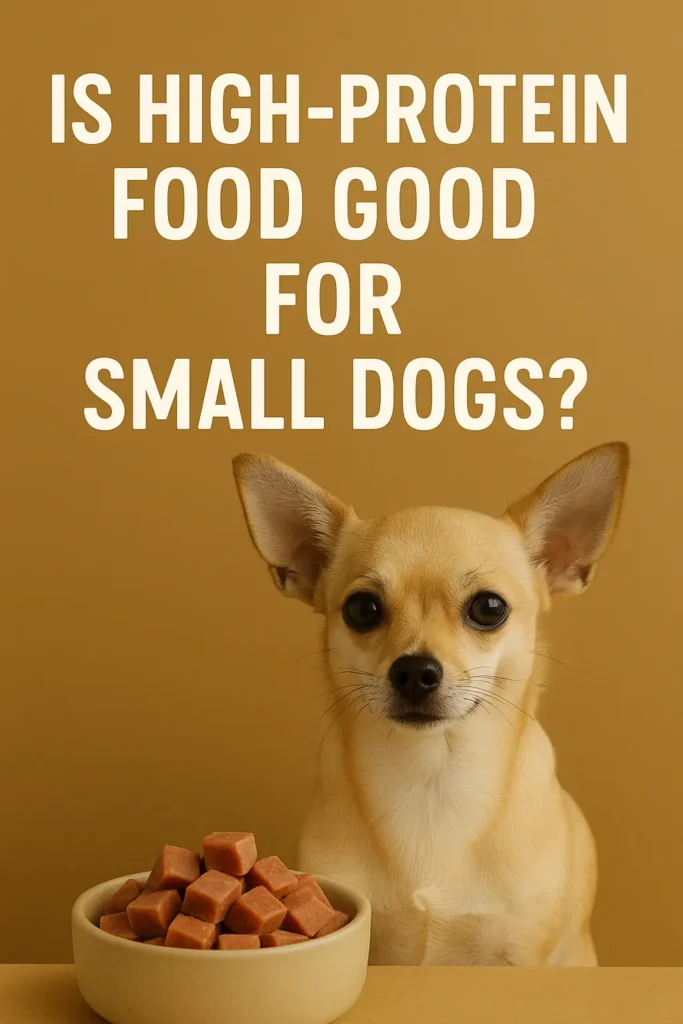
But not all protein is equal. Look for real, named meats like chicken, beef, turkey, or salmon—not meat by-products or fillers. Also, balance matters. Excessive protein without proper fat, fiber, and carbs can lead to digestive issues.
Is Grain-Free Food Good for Small Dogs?
Grain-free food can be a great option for some small dogs—especially those with grain allergies or sensitive stomachs. By removing common grains like wheat, corn, and soy, these diets often reduce the risk of digestive upset, skin irritation, and food sensitivities.
Instead of grains, grain-free formulas use alternatives like sweet potatoes, peas, or lentils, which provide energy and fiber without the allergens.
However, not all small dogs need a grain-free diet. In fact, whole grains like brown rice and oats can be very nutritious and easy to digest for many pups.
Best Dry Food for Small Dogs
The best dry food for small dogs is one that meets their unique nutritional needs in a size and texture they can comfortably chew. Small breeds need calorie-dense kibble packed with high-quality ingredients to support their fast metabolism and active lifestyle.
When choosing dry food, look for:
- Real meat (chicken, turkey, or salmon) as the first ingredient
- Small-sized kibble for easy chewing and better dental health
- Healthy fats like fish oil for skin and coat support
- Probiotics and fiber for digestion
- No fillers, artificial colors, or by-products
Top-rated brands often offer small breed-specific formulas that are rich in protein and balanced with essential vitamins and minerals.
What Food Is Best for Small Dogs?
Small dogs do not understand when you need food. So, everyone will be conscious about small dog nutrition. Feeding your small dog the right food is one of the most important steps to keeping them healthy, energetic, and happy. But with so many options available, it’s easy to feel overwhelmed. So, what food is actually best for small dogs?
The Best Food for Small Dogs: What to Look For
Small breeds have fast metabolisms and small stomachs, so they need nutrient-dense food in small portions. Here’s what makes the best food for your little companion:
1. High-Quality Animal Protein
Protein is essential for muscle strength and energy. Look for real meat like chicken, turkey, lamb, or salmon as the first ingredient. It should be clearly named—not vague terms like “meat meal.”
2. Small-Sized Kibble
Dry food designed for small breeds features smaller kibble that’s easier for little mouths to chew and helps reduce plaque buildup.
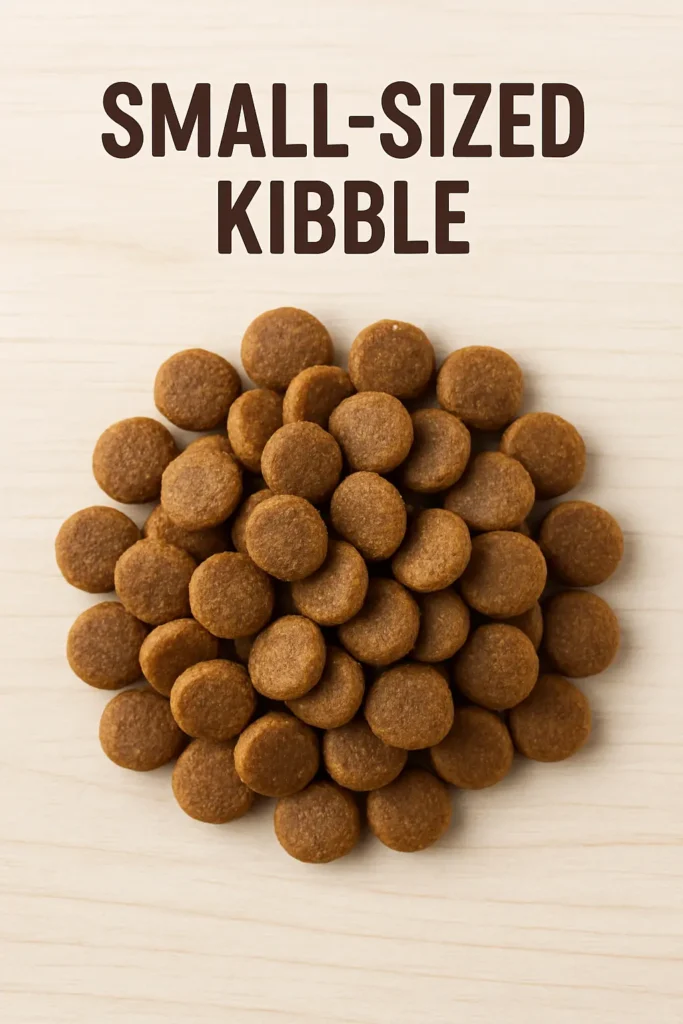
3. Healthy Fats and Fatty Acids
Fats provide energy and keep your dog’s skin and coat shiny. Ingredients like salmon oil and flaxseed offer Omega-3 and Omega-6 fatty acids.
4. Digestive Support
Small dogs can have sensitive stomachs. Look for food with:
- Prebiotics and probiotics
- Easily digestible ingredients
- Fiber-rich carbs like sweet potatoes or oats
Read more
Best Homemade Dog Food for Senior Dogs
5. Complete and Balanced Nutrition
Ensure the food is AAFCO-approved (or meets your local nutrition standards) and tailored to your dog’s life stage—puppy, adult, or senior.
What Is the Healthiest Food for Small Dogs?
The healthiest food for small dogs is one that’s high in quality, rich in nutrients, and tailored to their unique needs. Because small breeds have fast metabolisms and smaller stomachs, every bite needs to count.
Key Features of Healthy Small Dog Food:
- ✅ Real meat (like chicken, beef, or fish) as the first ingredient
- ✅ Healthy fats (e.g., salmon oil, flaxseed) for skin and coat
- ✅ Small kibble size for easy chewing and better dental health
- ✅ Digestive support with fiber, probiotics, and natural ingredients
- ✅ No artificial colors, fillers, or by-products
Some of the healthiest options also include whole grains like brown rice or grain-free alternatives like sweet potatoes—depending on your dog’s needs.
FAQ Questions
What Ingredients Should I Avoid in Small Dog Food?
Answer:
Avoid low-quality fillers and artificial additives that offer little nutritional value. These include:
- Corn, wheat, or soy (common allergens and fillers)
- Meat by-products or unnamed meat sources
- Artificial colors, flavors, and preservatives
- Excessive salt or sugar
These ingredients can cause allergies, digestive issues, or long-term health problems. Always choose food with real, named meats and natural ingredients.
What Dog Food Do Vets Recommend for Small Dogs?
Answer:
Most vets recommend high-quality, small breed-specific formulas that support energy, digestion, and dental health. Trusted vet-recommended brands often include:
- Royal Canin Small Breed
- Hill’s Science Diet Small Paws
- Purina Pro Plan Small Breed
- Wellness CORE Small Breed
- Blue Buffalo Life Protection for Small Dogs
Make sure the food is AAFCO-approved and matches your dog’s life stage (puppy, adult, or senior).
How Much Should I Feed My Small Dog Daily?
Answer:
Feeding amounts depend on your dog’s weight, age, activity level, and the type of food you’re using. On average:
- 2 to 4 pounds: 1/3 to 1/2 cup per day
- 5 to 10 pounds: 1/2 to 3/4 cup per day
- 11 to 15 pounds: 3/4 to 1 cup per day
Check the feeding guide on your dog food label and divide the amount into 2-3 small meals daily to maintain stable energy and avoid overeating. Always adjust based on your vet’s recommendation and your dog’s body condition.
Follow our facebook page – TruMulti

